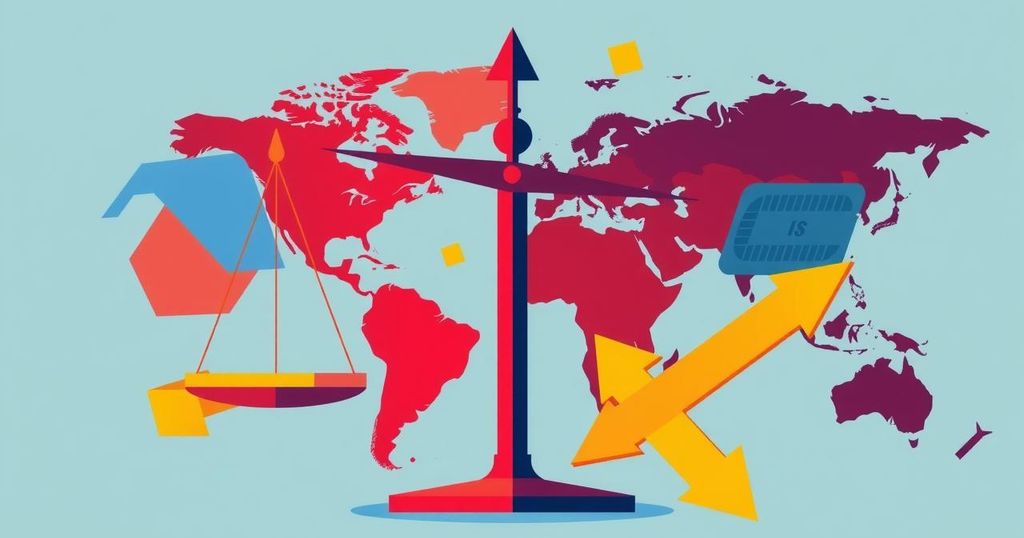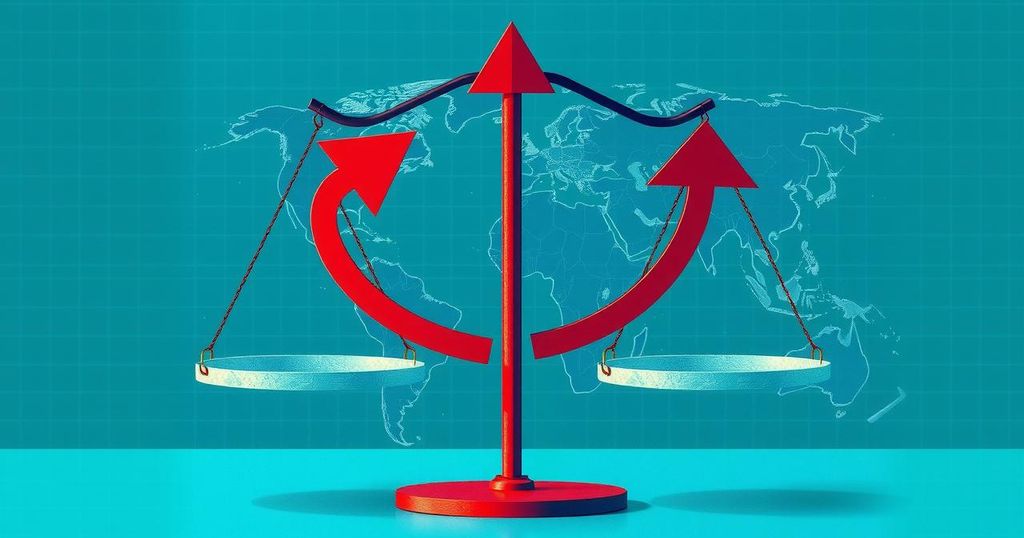President Trump is expected to announce new reciprocal tariffs on April 2, targeting all U.S. trade partners. Following the announcement, tariffs will take effect immediately, particularly a 25% tariff on auto imports. Countries like India are monitoring the situation while negotiating bilateral agreements, and U.S. allies are preparing counteractions.
On April 2, President Donald Trump is anticipated to announce new “reciprocal tariffs” affecting all U.S. trade partners, although specific details regarding the tariffs have not been disclosed. White House spokeswoman Karoline Leavitt stated that these tariffs aim to rectify long-standing unfair trade practices and represent a historic shift towards fairness for American workers.
Immediately following the announcement, tariffs on nations imposing high duties on U.S. goods will come into effect, with a notable 25% tariff on auto imports starting April 3. Trump’s administration maintains that the implementation of these tariffs is part of an essential strategy to protect American economic interests, as further refined consultations with advisors were conducted leading up to the announcement.
Countries like India are adopting a cautious strategy, monitoring the impending tariffs while continuing negotiations for a bilateral trade agreement with the U.S. Despite conflicting viewpoints, Indian officials have analyzed the potential repercussions of new tariffs on their trade relations and expressed optimism regarding ongoing discussions.
Scott Bessent, U.S. Treasury Secretary, indicated that any new tariffs would establish a cap on the highest tariff levels for various nations, suggesting that these tariffs might be lowered contingent upon meeting U.S. demands. Reports suggest an average duties increase by approximately 20% could be implemented, with an anticipated revenue of $6 trillion, which might be utilized for rebates to affected sectors.
Reactions from U.S. allies reveal strong resistance to Trump’s tariff proposals. Canada has indicated intentions to retaliate with its own tariffs, while EU executive chief Ursula von der Leyen emphasized a preference for negotiated resolutions but reassured that the EU has a robust plan to safeguard its interests against unilateral U.S. actions.
In conclusion, President Trump’s forthcoming announcement of reciprocal tariffs signifies a significant shift in U.S. trade policy, considered by some to be necessary to address long-standing inequities. As countries, including India and U.S. allies, brace for potential repercussions, the outcome of these tariffs will depend largely on ongoing negotiations and responses from the impacted nations. The situation remains fluid, requiring close observation of developments in international trade relations.
Original Source: www.hindustantimes.com




